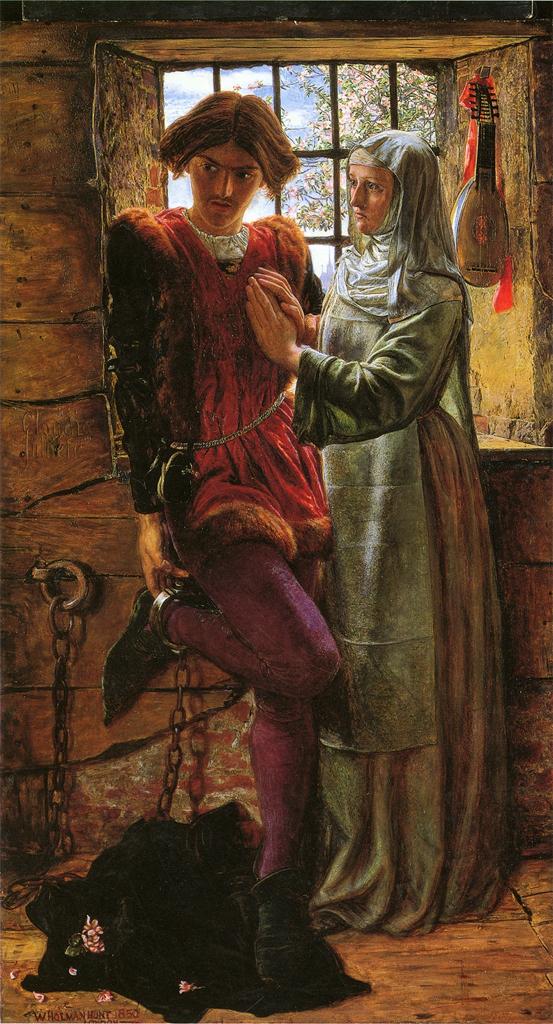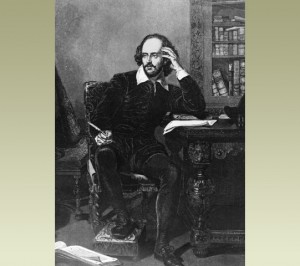Imagine the tempest… not Shakespeare’s play itself, but the actual storm described. Do you imagine a dark, chaotic scene filled with powerful, crashing waves? Do you see sailors scurrying around, trying to keep the ship from sinking?



Imagine the tempest… not Shakespeare’s play itself, but the actual storm described. Do you imagine a dark, chaotic scene filled with powerful, crashing waves? Do you see sailors scurrying around, trying to keep the ship from sinking?

All play, no work, all day, an idealized world with no one above the other. These are not images that readily come to mind when I hear the word “plantation”. More readily images of work, whipping, and toil come to mind at the mention of that term. Yet, in Shakespeare’s play The Tempest an old honorable councilor named Gonzalo states “Had I plantation of this isle, my lord-/… All things in common nature should produce/ Without sweat or endeavor” (2.1.138, 155-156). So what does Shakespeare mean when he employs the term “plantation”?
Processing Measure for Measure as a twentieth century female is terrible. It is uncomfortable to say the least, to watch a pious virginal woman be forced to choose between her brother’s life and her agency over her body. Not only does Angelo want Isabella’s, body and virginity, but he also wants her consent. He wants Isabella to want to have sex with him—freeing him of guilt perhaps? And so, Isabella, in quiet the bind, decides to manipulate the situation and the comedic trick titled ‘The Bed-Trick’ by A.D. Nuttall, in his article for the Shakespeare Survey, occurs.
Pico della Mirandola’s seminal Renaissance discourse, Oration of the Dignity of Man, championed the sovereign individual: “Whatever seeds each man cultivates will grow to maturity and bear in him their own fruit”. At the center of the creative ladder, human beings can grasp the ‘fruits’ of God, but only once equipped with the ‘seeds’ of reason. The ascent of man requires deliberate cultivation, establishing ordering structures of religious and civic codes to abate the savage, anarchic alternative: the unfettered reign of nature. Continue reading
In Measure for Measure, Shakespeare plays with themes of Puritanism. On a micro, specific level, Isabella is a Puritanical character. Her devout repudiation of sexual intercourse and her choice to remain chaste in the name of God to preserve her immortal soul, exemplifies Puritan values. However, the entire play can be seen as a discussion of the “Puritan campaign” because Shakespeare situates the characters in a world where “that sexual offenses like fornication, adultery, and bastardy [can be punished] by death” (Policing). Continue reading

The past debates around Isabella’s worth as a character perturb Marcia Riefer, author of “ ‘Instruments of Some More Mightier Member’ : The Constriction of Female Power in Measure for Measure.” Riefer, combatting past interpretations of Isabella as either an “angel” or a “vixen” develops a clear argument about the damaging effect of patriarchy in the play Measure for Measure, dividing her argument into six clearly articulated and logically flowing points. Continue reading

Pay your taxes, do not drive above the speed limit, do not steal things, do not park in handicap parking spots, do not commit indecent exposure in public…etc. Laws such as these and many others regulate our lives. In some instances they benefit the general public, such as laws that state murder and arson. Yet other laws regulate less malicious activities but can officially inflict harsh punishments, such as potentially receiving five years in prison for breaking a window or other property damage. This is not a new quandary; in fact Shakespeare encapsulates and explains this conundrum in Measure for Measure. Continue reading

Critics have 99 problems and disagreeing on Measure for Measure is definitely one of them. Continue reading

Among the elements of comedy that ultimately are placed under uncomfortable strain in the eyes of the audience, the bed trick in Shakespeare’s Measure for Measure is an particularly palpable one. Although an element of romantic comedy, the bed trick has long represented a problem of both morality and realism in its usage.

A (hypothetical) portrait of Shakespeare at his desk. It’s very possible that he would have worked with multiple popular texts to compose his own
To the reverent eyes of modernity, Shakespeare’s fame is infallible. His very name has almost been chiseled into a byword for literary genius, and accords a respect approximately proportionate to say, Einstein in terms of the sciences. Yet, simple investigation often shocks readers when they discover that Shakespeare’s plays are often, on the schematic surface, markedly derivative of prior cultural productions. Often lifting or borrowing entire plots and characters, Shakespeare’s plays skirt towards imitation, superficially at least, to a degree that would furrow the brows of modern-day anti-plagiarism culture. The instinctive reaction can be disillusionment. Entire visions of romantic inspiration shatter when any adequate glossary explains that Shakespeare’s Romeo and Juliet is a rehashing of a popular tale, and a contemporary poem The Tragical History of Romeus and Juliet (the companion edition of G.B. Harrison, in my case). Measure for Measure is no exception to this practice. Yet dissecting the inspirations, influences and derivations is not necessarily to abolish Shakespeare’s genius, or dramatically rip the mask from literature’s idol. Instead, as critical analysis has long accepted, detecting Shakespeare’s sources only contextualizes his plays, not as spontaneous innovations, but as deeply imbedded in a society chafed by rapidly modernizing views of injustice, yet festering with crime proportionate to unprecedented urbanization.